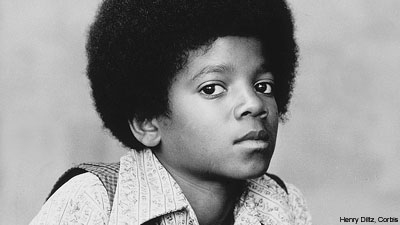podcast 165 – Alvan Lamson’s On the Doctrine of Two Natures in Jesus Christ – Part 1
All Christians have always believed that Jesus Christ is one person with two natures, a divine nature and a human nature, right?
All Christians have always believed that Jesus Christ is one person with two natures, a divine nature and a human nature, right?
Was the Council of Nicea (325) a defense and re-affirmation of core catholic theology? And did the Council of Constantinople (381) merely re-affirm Nicea, and slightly clean up its language and the details of its theology? In this episode, analytic theologian Dr. William Hasker gives his perspective on these fourth century events, reading from his Metaphysics and the Tripersonal God (discussed here and here). He contrasts a… Read More »podcast 31 – Dr. William Hasker on the “Arian” Controversy
Dr. William Vallicella discusses his relation to the Roman Catholic faith of his youth, his idea of what philosophy is all about, the concept of God, the utility of meditation, blogging, and his views on faith and reason.
I’ve been thinking lately about theories about religious diversity lately, because I’m trying to finish up an article on that topic. One family of theories about religious diversity is what philosophers call religious pluralism – the idea that many religions are equally good in some way(s). This idea gets a lot of lip service in modern Hinduism. A number of modern-era Hindu thinkers, notably Gandhi,… Read More »religious diversity, pluralism, and tolerance
In this second philosophical conversation with Dr. Joseph Jedwab we discuss some of his reasons for thinking that God is strictly aspatial but loosely spatial and present at all places.
How widely has God’s spirit been active in the world?
In his debate with Muslim apologist Shadid Lewis does Reformed Christian apologist Anthony Rogers establish the consistency of the Trinity and monotheism? That is, does he prove that the Trinity doctrine is not a form of polytheism? Is this episode, we examine his arguments, and discuss the Qur’an, abrogation, and whether it always distinguishes Christians from polytheists Rogers’s argument from Genesis 18-19 that Moses taught… Read More »podcast 20 – review of the Lewis-Rogers debate – part 1
This week I start with a long and insightful listener comment. Among other things, he asks how one’s theology as unitarian or trinitarian affect one’s discipleship, or how one follows Jesus as Lord. I give a short answer from my own experience here, confessing how my own confusions hindered my spiritual life. The listener also asks: doesn’t Locke require too little? In particular, mustn’t a Christian also, minimally,… Read More »podcast 53 – John Locke’s The Reasonableness of Christianity, Part 2
In the reign of Constantius II yet another council offered language to replace Nicea…
Apologetics is hard, because it’s hard be an expert on more than a few subjects. There’s a strong pressure to just recycle bad arguments and wrongheaded claims propounded by other apologists.
With this episode we continue our series on the 4th-century creed-producing councils of catholic bishops.

Up to this point in Book 3 Richard has told us several things about love (caritas). We have wondered at his saying there isn’t a perfectly good person if he doesn’t love. We have sorted through some necessary conditions for love such that we wonder whether a perfectly good person p must love another person q if p is to be perfectly good. You might say we’ve been contemplating some divine ethics, or aesthetics, or whatever.
In the previous post I suggested how we might interpret what Richard means by saying (two) divine persons are equal and similar to one another, namely the divine persons have the same disposition of love and the same acts of love (see [T4’] and [T5’]). In the next part of Richard’s argument he returns to his metaphysics of the divine substance which he discussed in Books 1 and 2.Read More »Richard of St. Victor 7 – The Same Divine Substance (Scott)
In this series I’m going to get a bit more personal.
A thoughtful Baptist confronts his church about biblical vs. later teachings about God, Jesus, and heresy.
In this episode, Dr. Davis reads short selections from his 2006 book Christian Philosophical Theology (Oxford University Press). As he said in our interview, this book is probably the best place to look for his mature views. Hopefully Oxford University Press will someday release this in paperback and electronic versions. He addresses John Hick’s and others’ “minimal christology” on which Jesus is merely a wise teacher,… Read More »podcast 41 – Stephen T. Davis’s Christian Philosophical Theology
His views seem to have been those of present-day biblical unitarians.
Does unitarian Christianity “deny the Divinity of Christ,” preach “morality,” and teach salvation by works?
Now, to resume our drawn out and often-stalled series on Richard of St. Victor, in which we blog through th e entirety of book III of his De Trinitate (On the Trinity), in which he famously / notoriously argues for the Trinity from reason alone. These chapters, like many preceding ones, are too compressed, so I’ll try to unpack them for us.
e entirety of book III of his De Trinitate (On the Trinity), in which he famously / notoriously argues for the Trinity from reason alone. These chapters, like many preceding ones, are too compressed, so I’ll try to unpack them for us.
In chapter 23, Richard says that between the members of the Trinity “there seems to be more identity [sameness] than equality.” (p. 395) He then cites as an example three indistinguishable golden statues. Because they’re indistinguishable, we say they are “equal”. But there are three masses of gold involved, and so there are really three things here, three statues. But the case of the Trinity is different, he urges. How? Because “whatever is in any one person of the Trinity, the smae is also completely in any other person.” Here, he implies, we do have a deeper kind of “identity” or “sameness”.
I take it that Richard’s point is that the three Persons of the Trinity don’t differ as far as their composition, because each contains one and the same divine nature, here thought of as a particular.
He then brings up a case of “three rational spirits”, three souls. Read More »Richard of St. Victor’s De Trinitate, Ch. 23
In this talk from the 2016 Theological Conference, Pastor Sean Finnegan discusses the biblical data about why Jesus died, and lays out seven options for understanding Jesus’s unique atonement.
I have gone through all six. Which stage are you at, and what is keeping you from moving to the next?